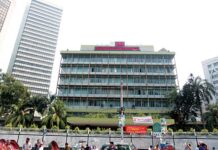
A file photo shows some cargoes parked at the Chittagong Port in the port city. The country’s trade deficit slightly increased to $3.26 billion in the first half of the current financial year of 2015-16 compared with that of $3.05 billion in the same period of FY15.
The country’s trade deficit slightly increased to $3.26 billion in the first half of the current financial year of 2015-16 compared with that of $3.05 billion in the same period of FY15 due to an increase in import payments.
According to the latest Bangladesh Bank data, the trade deficit had increased by 25.37 per cent in the first six months of FY15 compared with that of $2.43 billion in the same period of FY14.
A BB official said the country posted a record trade gap in last financial year but the deficit decreased significantly in the first four months of FY16 due to a massive drop in import payments.
The trade deficit had hit its all-time high at $9.91 billion in FY15.
The trade gap, however, increased slightly between November and December as the imports picked up during the period.
The BB data showed that the export earnings registered a 7.02-per cent growth in the first six months of FY16 compared with that of 1.28-per cent growth in the same period of FY15.
The export earnings stood at $15.72 billion in the July-December period of FY16 and it was $14.69 billion during the same period of FY15.
The imports registered a 6.96-per cent growth in the first six months of FY16 compared with that of 4.74-per cent growth in the corresponding period of FY15.
The import payments stood at $18.99 billion in the July-December period of FY16 and it was $17.75 billion in the same period of FY15.
A BB official told New Age on Thursday that the country’s businesspeople were now reluctant to open letters of credit to expand their business due to the ongoing political uncertainty.
So, widening of the trade gap remained slow in recent months but it would not put much positive impact on the country’s macroeconomic situation as it did not result from a better export growth, he said.
Political uncertainty put an adverse impact on the country’s imports, which contributed to squeezing of the trade gap, the official said.
The investors and businesspeople are yet to regain their confidence to expand their businesses and so the import financing by banks has remained dull in recent months, he said.
The businessmen are still following a cautious policy in importing industrial raw materials as they think that the political unrest may return anytime soon, the official said.
The BB data showed that the current account balance increased to $2 billion in the first six months of FY16 against $1.64 million during the same period a financial year ago.
The contracted trade deficit mainly played a role in registering a surplus current account balance in the first
six months of FY16.
The net foreign direct investment increased by 8.02 per cent to $795 million in the July-December period from that of $736
million in the same period of FY15.
The financial account of the country’s balance of payments increased to $552 million in the first six months of FY16 from $174 million during the same period of FY15.
The financial account includes foreign direct investment, portfolio investment, and medium- and long-term loans.
The country’s overall balance increased by 68.78 per cent to $2.43 billion in the July-December period of FY16 against $1.44 billion during the same period of FY15 due to its strong position in the current account balance.
Source: New Age









